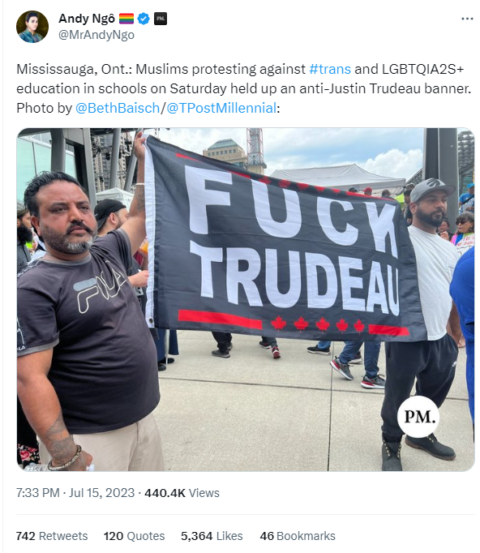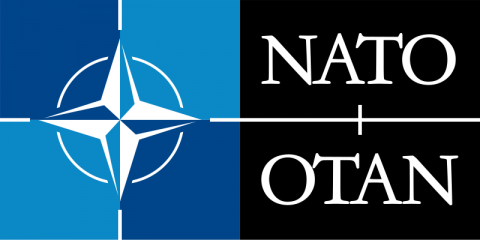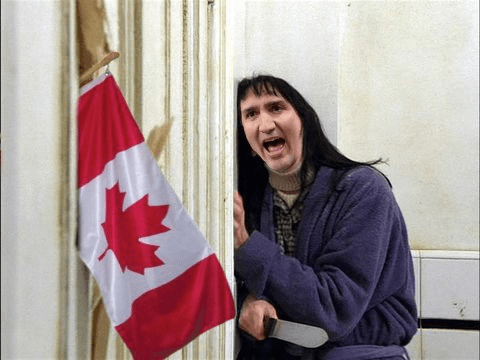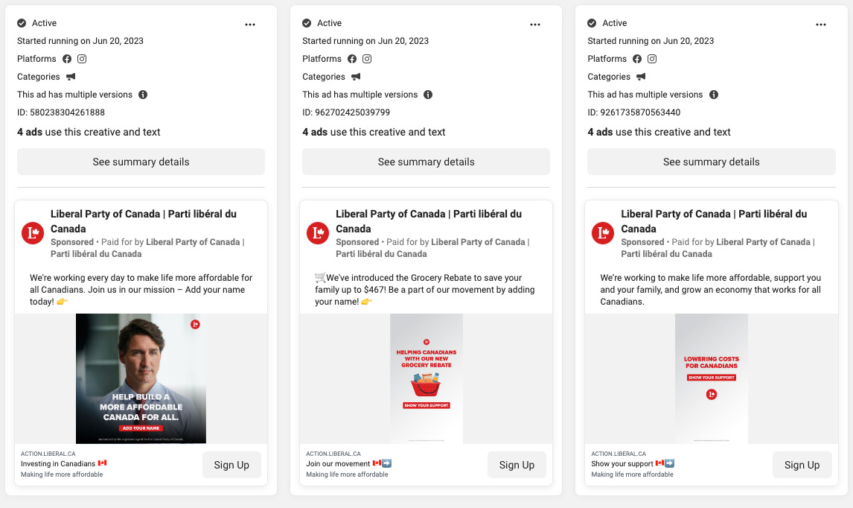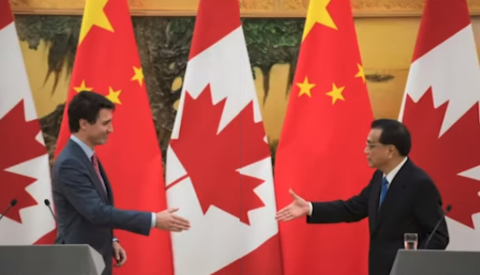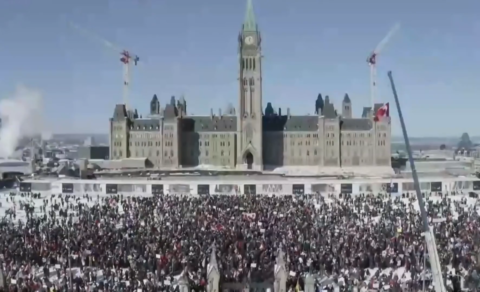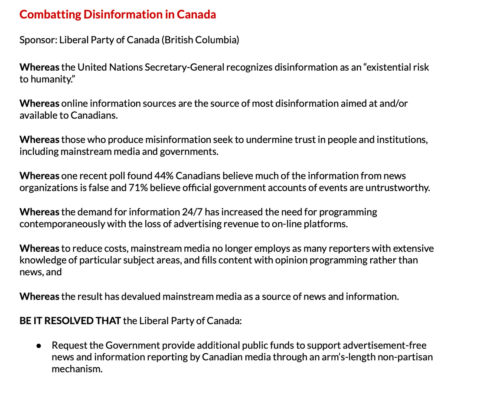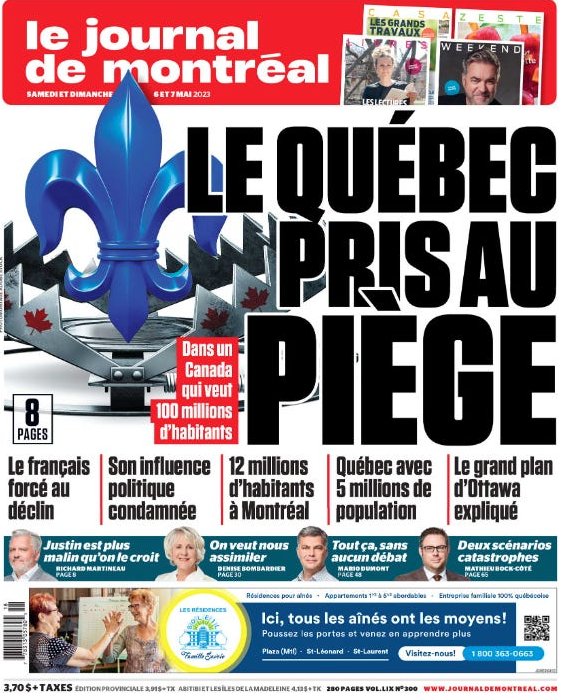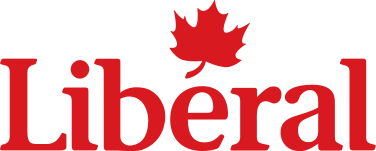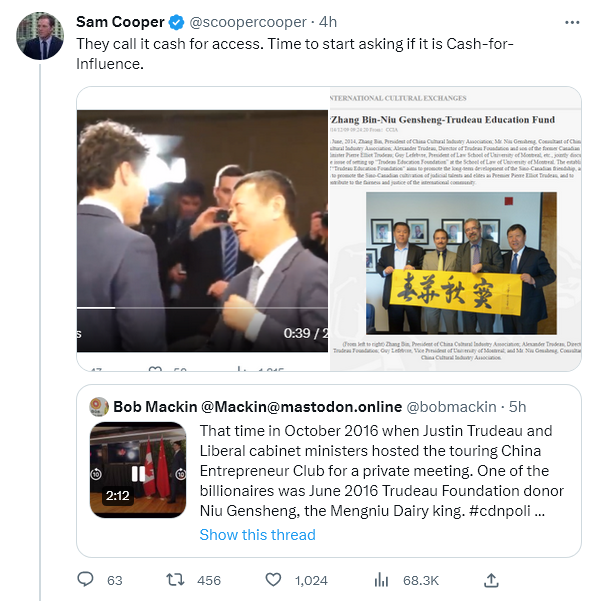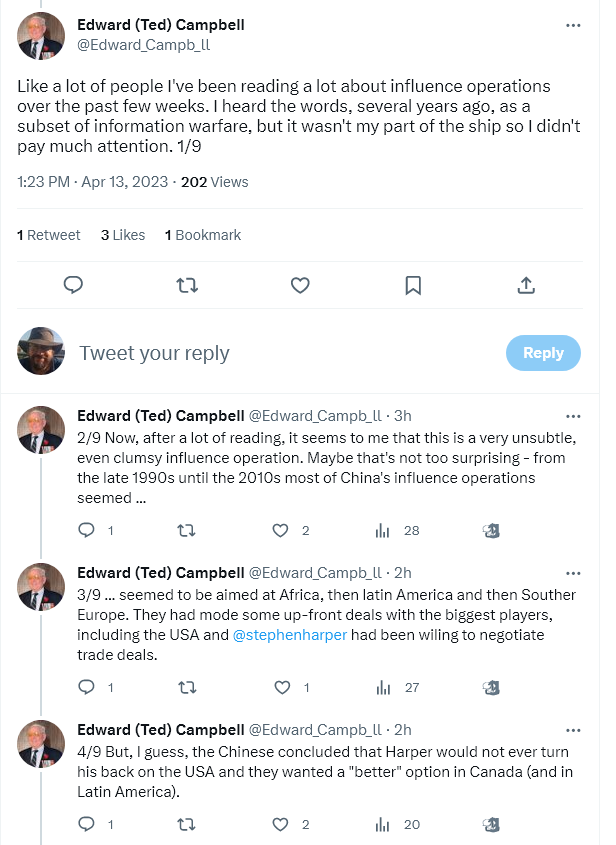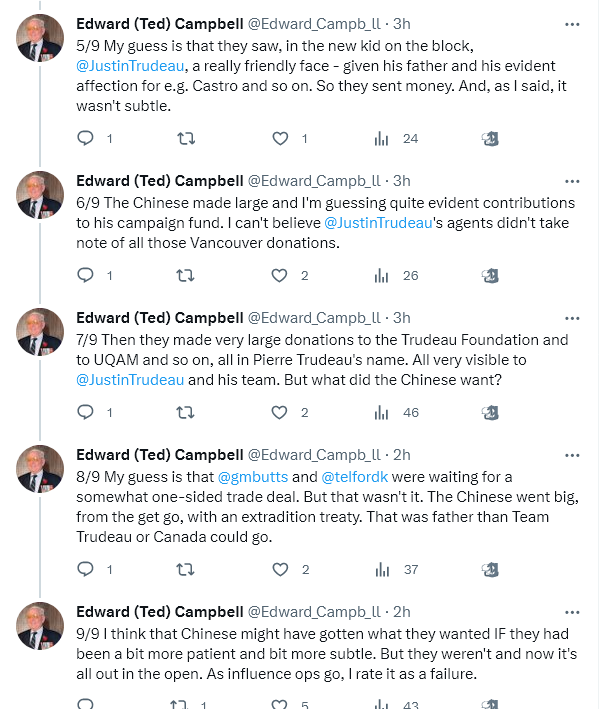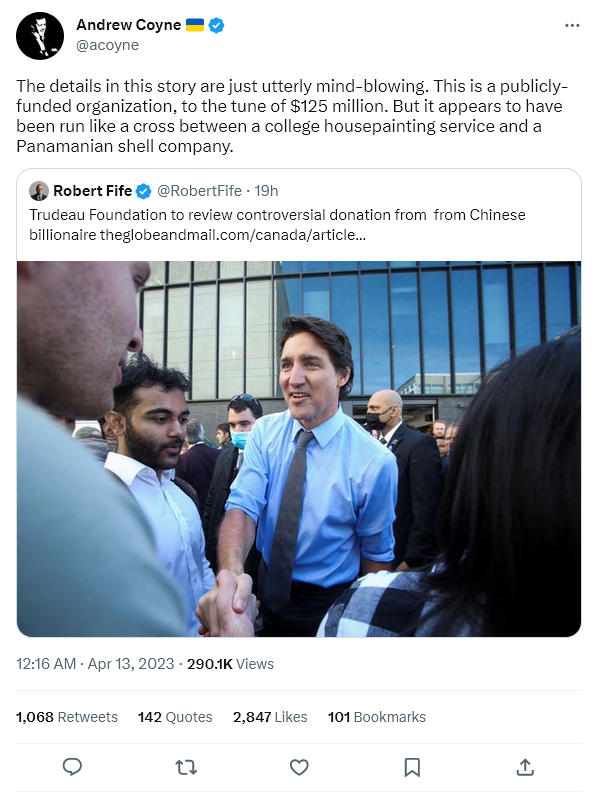In the weekend’s roundup post from the editors of The Line, one of the topics discussed was Prime Minister Trudeau’s attempt to blow smoke up the collective butts of deeply religious Canadian Muslims that the only reason they were upset about his blatant dedication to LGBT issues was due to brainwashing by extreme right-wing Americans:
this week offered us a video clip of Trudeau that was just too interesting for us to pass up. Readers may recall a story from a few weeks ago in which several Muslim students in Edmonton absented themselves from Pride events and were lambasted by their teacher, who told them that they had to support this event or they “can’t be Canadians.” We didn’t make much note of it at the time because our colleague and friend at the National Post Colby Cosh had the definitive and winning take: that is, the teacher is a fucknut. These kids didn’t protest or object to pride or make their peers feel uncomfortable in any way. They just declined to participate. And in a pluralistic society, politely absenting oneself from ideological events with which one disagrees and instead hanging out at the Orange Julius or wherever the hell kids spend time these days is about the most perfect and Canadian response.
Perhaps not coincidentally, upon receiving such clear signals about the conduct that is now expected of a Canadian, Muslim parents are organizing ever louder protests against what they deem to be LGBTQ “indoctrination” in schools. And if you’ve been paying any attention to the logic pretzels that have been spun about intersectionality, lived experiences, the importance of listening to minority voices in majority cultures and so on, this is about the point at which you’re going to grab the popcorn, because what we have here, ladies and gentlemen, is a bona fide clash of values between competing minority interest groups.
So we give the prime minister a lot of credit for meeting with Muslim parents in a Calgary-area mosque last week to discuss the issue. And we mean that! Genuinely! Heading face-first into a mob of angry parents is a really difficult thing for anybody to do. He deserves credit for doing this.
However, the response that was recorded by attendees was also very, very interesting. The furore over LGBTQ issues in schools is much ado about nothing, he insisted; the result of right-wing extremists spreading “a lot of untruths about what’s actually in provincial curriculums”.
Trudeau continued: “They are weaponizing the issue of LGBT, which is something that, yes, Islam has strong opinions on …. That is something that is being weaponized by people who are not doing it because of their interest in supporting the Muslim community.”
A few notes about this response: The first is that it is undeniably true. There are anti-LGBTQ activists who are trying to mobilize the Muslim community because this minority population has greater moral suasion among the intersectionality set than socially conservative white Christians. There are right-wing commentators out there who focus on cases, videos, examples and books that they claim demonstrates a pervasive trend of “indoctrination” on LGBTQ issues in school environments. The examples are out there, and some are age-inappropriate. However, we have no sense that those examples are representative of what’s happening in most classrooms. Are there a lot more non-binary 12-year-olds in middle school nowadays? Sure. Is that a problem? We don’t know. Maybe? But we’ve yet to walk into an elementary school hosting a 24/7 Pride Parade with naked men and women throwing rainbow glitter and condoms to the kiddies. We are savvy enough media consumers to know that in a social-media age, edge cases have a habit of being falsely portrayed as routine.
Our snark aside, Trudeau’s response is interesting because it is also a dodge. Trudeau doesn’t actually want to deal with the hard problem of how to accommodate competing minority rights. So instead he pretends there is no problem. He blames the perception of a problem on disinformation agents. Marvellous — right up until the moment we see some video from a Toronto school of a teacher screaming at eight-year-olds that there is no such thing as boys and girls and that the whole concept of biological sex is an expression of imperialism and white supremacy. (Ed note: pin this graf for future victory lap.)
Or, just as an example of the sort of thing that just maybe could happen, when an ostensibly trans shop teacher shows up to class in a wig and Size-Z prosthetic breasts with armour-piercing nipples and the school board responds by saying “This is not a problem, you bigot,” and then it turns out that the teacher in question hasn’t been entirely upfront about their life! Or until, well, some teacher tells a bunch of Edmonton kids that skipping pride to head to the mall makes them un-Canadian. Oops! Wait, so who’s lying now?
The second reason we found this response interesting is that it’s become this government’s go-to deflection. All criticism is just disinformation. Anybody who disagrees with the Liberals is a baddie because can’t you see how awesome and empathetic and genuinely well intentioned they are? Throw in a little threadbare virtue, a touch of white saviour: “you, poor, deluded, Muslims, are just being manipulated by malign forces and can’t possibly understand what you’re saying or what you really believe,” and you’ve got a pitch-perfect urban progressive Canadian non-comment. It’s a mask slip moment, when we see exactly how Trudeau seems himself, and how he sees the people he’s talking to. Oh wait: actual Muslims find this statement condescending and insulting? Don’t they know whose side they’re supposed to be on? Maybe they’re just watching too much Matt Walsh. Why does anybody need to define what a woman is anyway? Maybe we need a new law for that so the plebes stop getting so confused …
You see where this logic takes us. We may wade into this one a bit more at The Line in coming days and weeks, so enough said for now. But for now, it’s enough to note that this is not how a mature, pluralistic society handles irreconcilable differences in values and beliefs. Generally speaking, everyone is pretty content to let adults live and let live, but when you bring kids into any ideological agenda, expect matters to get ugly quickly. And you’re going to need a better response to legitimate concerns about how an emerging secular ideological consensus around gender and ideology crashes against deeply held religious values than: “YouTube lies”.

